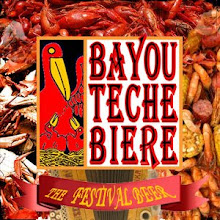Took a break and spent a very wet October morning picking up pecans with my little girl. When we were done, the two of us sat on the porch of the brewery taking turns cracking them open with an empty German beer bottle. We ate pecans till we were full like the winter ready squirrels in the Brewery’s nearby trees.
I guess the significance of the beginning of autumn is different to people in other places, but in Acadiana it means we start picking, shelling and putting away pecans. In Germany they think of drinking Marzenbier at the Oktoberfest.
Marzenbier was what was in that empty bottle we used to crack open those pecans.
My brothers’ and my childhoods’ autumn weekends were spent picking sacks of pecans at our grandparent’s farm near Arnaudville. Most of those pecans were to be sold, but some were kept to be put away for the upcoming year’s pralines, fudge, pecan pies and cakes.
The first Oktoberfest was in Munich on October 18, 1810 celebrating the commemoration of the marriage of Crown Prince Ludwing and Princess Therese and also the introduction Marzen style of beer. Of course now, two hundred years later Bavarians celebrate the release of the new batch of Marzen beers at Oktoberfest and not the royal wedding.
Abita brews a celebratory Harvest Pecan Beer every autumn. Though not as good a use of pecans as pralines, fudge or pies, it is a very tasty brew. If Oktoberfest would have been invented in a pecan harvesting Louisiana instead of Bavaria, I imagine it is the kind of beer we would serve.
Our little town of Arnaudville had its first ever Oktoberfest last weekend. We brewed and served some German style Kolsch beer to go along with the mutzbratten, bratwurst, German potato salad, red cabbage, brotchen and German chocolate cake. Though not a style of beer we typically brew, or one served at your average Oktoberfest, it complements the hearty German barbequed meal rather well. There was a very large crowd there for the festivities, which surprised the organizers as there was an LSU football game that night.
There were complementary bottles of German Riesling – feeling German and only wanting to insure there was plenty of our beer for the guests, I consumed several of these wines myself.
In Germany, before refrigeration, it was risky to brew beer in the summer due to the hot weather and possible bacterial infection of the beer. Brewing ended with the arrival of spring, and began again in the fall. Thus, the last beers brewed before the warm months were brewed in March (Marzen). The beers were kept in cold caves for storage over the hot spring and summer months, and also brewed with higher alcohol content so they would keep. This is the beer of Oktoberfest and marzenbier is full bodied, rich, toasty and copper colored with high alcohol content.
Special autumn beers are a newfound tradition for American craft brewers as well. I just had a six-pack of New Belgium Brewery’s Hoptober ale smuggled in for me. Man was that beer fantastic. It tastes like an ale version of a Marzenbier (which is a lager), amped up with tons of hops. The Bayou Teche Brewery should be working a little harder on our autumn celebratory beer – we are tweaking a recipe and plan on having it on tap for Arnaudville’s Oktoberfest next year. The beer is a Top-Secret, Manhattan-style Project and will be like nothing else out there.
Just gotta stop taking so many breaks to pick pecans.
Monday, October 19, 2009
Subscribe to:
Post Comments (Atom)
















Please contact Rebecca at Cafe Des Amis. I want to talk to you about an event we're having here on October 29th. #332-5273
ReplyDelete